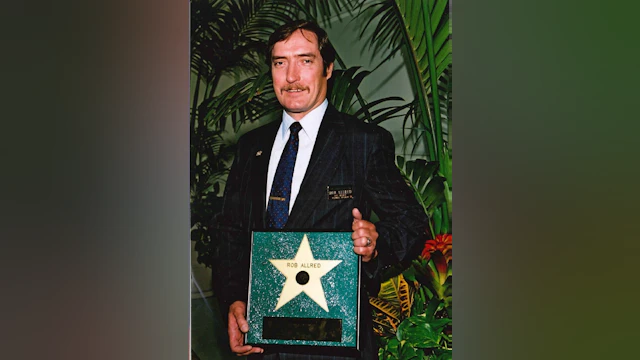Growing up, your dad is usually your first male friend. Dads are superheroes without capes; scarier than the boogieman at times, but as soft as a teddy bear, ready to snuggle.
My dad was the rock of our family, helping everyone and always bringing everyone together for dinner. He would give you the shirt off of his back if you needed it. His smile was so infectious; you couldn’t help but be happy around him. He always had a corny joke or two in case you needed to laugh.
On the outside, my dad was as tough as nails. It took a lot to break through his rough exterior. As a dad to an energetic boy and three very strong-willed girls, I guess you’d have to be tough. As tough as he was on the outside, though, he never revealed the pain he had going on inside.
For as long as I can remember, my dad drank. It wasn’t until I got older that I realized my dad had a drinking problem. He never outwardly appeared drunk, and he wouldn’t binge drink. He was more of a functioning alcoholic, able to get on with his day.
We did all of the things most fathers and daughters do. We argued because I thought I was right about everything, or because I blamed my sisters for something I did. We fished, hunted and camped: my favorite things to do. Sometimes it would be just the two of us, fishing at dusk: not saying a word but enjoying every minute of hanging out together. He taught me how a father should be: loving, but tough when he needed to be.
From what I saw, he was an amazing husband. I remember waking up on Saturday mornings and seeing him and my mom cleaning, cooking, or doing laundry. Sometimes I would wake up and they would be dancing around the house to Glen Miller. They did almost everything together. My parents rarely fought and never yelled at each other. My dad set the bar high for my husband.
Through the good times and bad, though, my dad drank. At some point, he started hiding it from my mom. Gradually, he stopped being the carefree dad that I knew. His smile wasn’t the same as it was when we were kids. My mom tried convincing him to get help, but he brushed it off, saying he didn’t have a problem.
December 30, 2003. I went to my parents’ home to check on my dad. He had been sick. As soon as I pulled up to the house, I had the most gut-wrenching feeling. Still, I didn’t think I would walk in to find my dad after his completed suicide.
“How could this be happening?” I wondered. My dad was the strongest person I knew. I didn’t think this sort of thing happened to families like mine. Sure, we weren’t perfect, but there was nothing that we, as a family, couldn’t face head-on and find a solution. This was suddenly our new reality: one in which the alcohol had won and my dad was gone.
It has been 13 years, four months and five days since my dad’s suicide.
I am not the same person I was when I woke up that morning.
I became involved with the American Foundation for Suicide Prevention after attending an Out of the Darkness Walk in Las Vegas. It was at that walk that I realized I was able to heal, and at that moment, I began my healing journey. I began researching and educating myself on how to help myself and others after this type of tragedy. I became an advocate and helped bring an AFSP chapter to Nevada. I’ve participated in five Out of the Darkness Walks and will be walking in my first Overnight Walk in San Diego to honor my dad. I’ve stormed Capitol Hill with other advocates to fight for funding and the passing of bills for suicide prevention.
Along my healing journey, I have learned that my dad’s suicide does not define him. He is not just a statistic: he was a husband, son, brother, and friend. He was my dad. I continue to learn from him and use what his death has taught me to help others in the hopes that we can break through the shame, and reduce the number of people lost to suicide.
